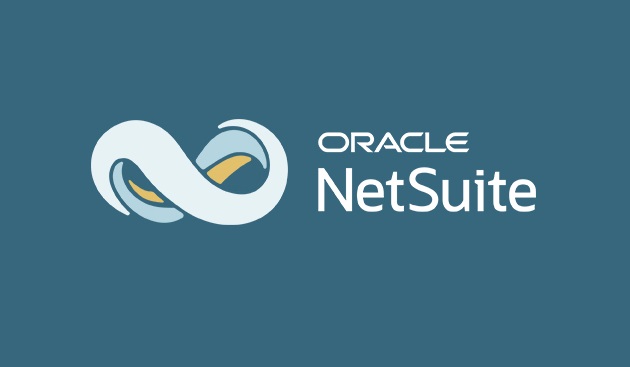Comtech Solutions was founded in
1992 and began development with
release 1.0 of MS Access. Access
continues to be the development
platform for the company’s
applications. Comtech is a privately
owned company with headquarters
in Houston, Texas and development
offices in Makati City, Philippines.
The company claims to be debt free,
with over 1,000 users and a rapidly
growing revenue base. The mission
and focus of the company is to develop
customizable business applications
software.
EASE OF USE/DATA ENTRY – 4 Stars
If you are familiar with MS Access,
you will be real comfortable working
in this system. Even if you’re
not, it is a relatively intuitive
system with a traditional Windows
graphical user interface. The system
is a little more sophisticated than
many of the other packages reviewed,
which isn’t necessarily a
negative other than that it might
take a bit longer to become proficient
with the system. Once you are familiar
with it, you will appreciate some
of the unique features. The graphical
command menu is a little inconsistent
with the pull-down command menus,
which can cause a little confusion
at the outset. One particularly
nice feature is that you can customize
the menu options displayed based
on the user login ID.
CUSTOMIZATION/ SCALABILITY/SECURITY – 5 Stars
This is clearly the strongest attribute
of the system. It is available in
both an Access and SQL version,
giving you the ability to scale
it up or down as much as you need.
Customization is very much an option
since the vendor distributes the
application’s source code
at no additional charge. The caveat
is that you need to be aware of
the risks of modifying the payroll
system independently without intimate
knowledge of the data structure,
etc. Comtech provides custom development
as one of its services in the event
you encounter a specialized client
need. In regards to security, the
opportunity to selectively ‘lock
down’ the system is unsurpassed.
There is an entire security setup
function that let’s you control
access at the menu level, data-entry
level and reporting level.
FLEXIBILITY – 5 Stars
The system is very flexible. You
can set up unlimited numbers of
pay types and deductions, organize
employees into payroll groups for
more efficient processing, record
and track hours charged to jobs,
and maintain a history of contact
with an employee. Another unique
feature is the ability to maintain
the payroll bank account within
the application. This includes tracking
deposits made, checks written and
reconciling the bank account. The
system also has a built-in GL function
to track and report the GL activity
related to the payroll function.
REPORTING & CHECK PRINTING – 5 Stars
CorPay comes with over 25 pre-formatted
payroll reports. You can customize
the design of any of the reports
if you are familiar with the Access
reporting tools. You can also create
your own custom reports from scratch.
All of the standard reports have
a two-tab dialogue box; the first
is for basic printing parameters
such as employees to include, date
range and sort order. An ‘advanced’
tab will let you define specific
field-level filtering criteria to
make the report as narrow in scope
as possible. You can print preview
all reports as an option. Be aware
that when you access the report
settings screen, you will have transcended
into the realm of software development,
and these screens are not designed
to be accessed by the casual user.
INTEGRATION/IMPORT/EXPORT – 4 Stars
Comtech offers a comprehensive accounting
system that includes a series of
modules ranging from GL to sales
order processing, inventory control,
purchase order and more. CorPay
payroll can be used in conjunction
with the accounting system or on
a stand-alone basis. In addition,
you have the inherent capability
of an Access database application
to import and export information
to/from other applications. Comtech
has the technical staff to help
you develop these interfaces if
necessary.
SUPPORT & UPDATES – 4 Stars
The vendor offers a complete set
of technical support services including
the following: unlimited e-mail
support and update downloads as
part of the standard maintenance
plan fee, telephone support at a
cost of $37.50 per 15-minute incre-ment,
programming support at a cost of
$50 per 15-minute incre-ment, and
priority phone support for $200
per hour with a two-hour response
time.
RELATIVE VALUE – 4 Stars
The CorPay solution is reasonably
priced for the level of features
and functionality pro-vided. The
Access version with unlimited users
on a single network and one year
of standard maintenance costs $799.
The SQL version is $1,799, and the
Access Developer License (optional)
is $1,799.
SUMMARY
The CorPay system is pretty robust
and provides unlimited customization,
flexibility and scalability. The
only concern is whether or not it
will be too sophisticated for the
casual user providing payroll services
to only a handful of clients. The
higher your volume of payroll clients
and level of sophistication, the
more suitable the CorPay application
will be.
2004 OVERALL RATING: 4.5 Stars
Review Attributes
This review is intended to focus
on payroll software solutions that
accommodate accounting firms that
provide client payroll services
as a ’boutique style service’
as opposed to a high-volume payroll
service bureau model (see August
2004 issue.) The attributes that
we felt were most important to address
for these boutique payroll systems
include the following six areas:
Ease of Use/Data Entry, Customization/Scalability/ Security, Flexibility, Reporting/Check Printing, Integration/Import/Export, Support/Updates
and Relative Value.
One caveat: The vendors who submitted
their solutions for review made
their own selection as to which
category to be listed under, and
the distinction between the packages
in the two separate groups can become
blurred. Therefore, be careful not
to reject solutions in one review
or the other simply on the basis
of the category they fall within.
Due to the fact that these systems
are not necessarily intended for
a high-volume, payroll production
environment, the Ease of Use/Data
Entry attribute is extremely important.
It is likely that the system will
be used by one or more staff members
who will process payroll on a relatively
infrequent basis, perhaps only a
few times a month. Therefore, the
system needs to be very intuitive
and easy to work with. What I looked
for here is how easy is it to quickly
understand the system flow, menu
design structure, data-entry screens,
etc. The easier it was for me to
understand and work through the
system, the higher the rating in
this category. If I had to constantly
refer to the help screens, user
guides or contact the vendor for
support, the rating was lower.
Even though we are making the assumption
that the packages reviewed in this
article are going to be used on
a relatively limited basis, it is
important that they have the Customization/Scalability/Security
features to support a large volume
client, provide the capability to
be adapted to a unique situation
and offer secure access to sensitive
client data. After all, the primary
reason firms support a boutique
level payroll service offering is
often driven by demands from a key
client who may have a relatively
large organization, highly specialized
needs, or a high profile in the
business community and wants to
ensure that the accountant provides
the maximum level of protection
and confidentiality of sensitive
payroll information.
The overall Flexibility of the system
is another important attribute that
was evaluated. The emphasis here
is on the software’s ability
to handle a multitude of payroll
situations, including pay date frequency,
multiple pay types and deductions,
multiple states, etc.
From the accountant’s perspective,
the software’s Reporting and
Check Printing capabilities are
perhaps the most important attributes.
After all, the accountant will be
relying heavily on the reports generated
to make sure the payroll tax compliance
requirements are met and to generate
the GL entries necessary to record
payroll. He will also use these
reports to continually monitor and
analyze the payroll information
to identify any irregularities and
unusual situations to which the
client should be alerted.
The ability to extend the payroll
system’s functionality by
importing data electronically from
time clocks, checkwriting systems
(for after-the-fact payroll processing)
and exporting information to human
resource and GL systems as well
as other software applications is
rated in the Integration/Import/Export
attribute. The higher the rating
in this category, the better able
the system will support a more complete
payroll service for your clients
as well as streamline the data-entry
process to optimize staff productivity.
The vendor’s commitment of
resources to help you utilize the
system as efficiently and effectively
as possible and to make sure you
are kept current on tax withholding
tables and other tax compliance
requirements is rated in the Support
& Updates attribute. Other than
providing some specifics of the
vendor’s policies and pricing
model for these services, the real
assessment of this attribute requires
you to perform your own due diligence
by speaking with other accountants
who are using the system in order
to assess their experience.
The Relative Value attribute focuses
on the overall economics of the
program. While a high rating here
implies a relatively lower overall
cost, I would like to caution you
that, as accountants, we tend to
focus on costs and how to minimize
them. The point to keep in mind
is that the lowest cost system is
unlikely to be the system that provides
the highest ROI (return on investment.)
If a more expensive system can reduce
total payroll processing time by
30 percent as a result of a better
design, user interface, etc., the
impact on the overall profitability
of your payroll services can be
significant.
Thanks for reading CPA Practice Advisor!
Subscribe Already registered? Log In
Need more information? Read the FAQs



